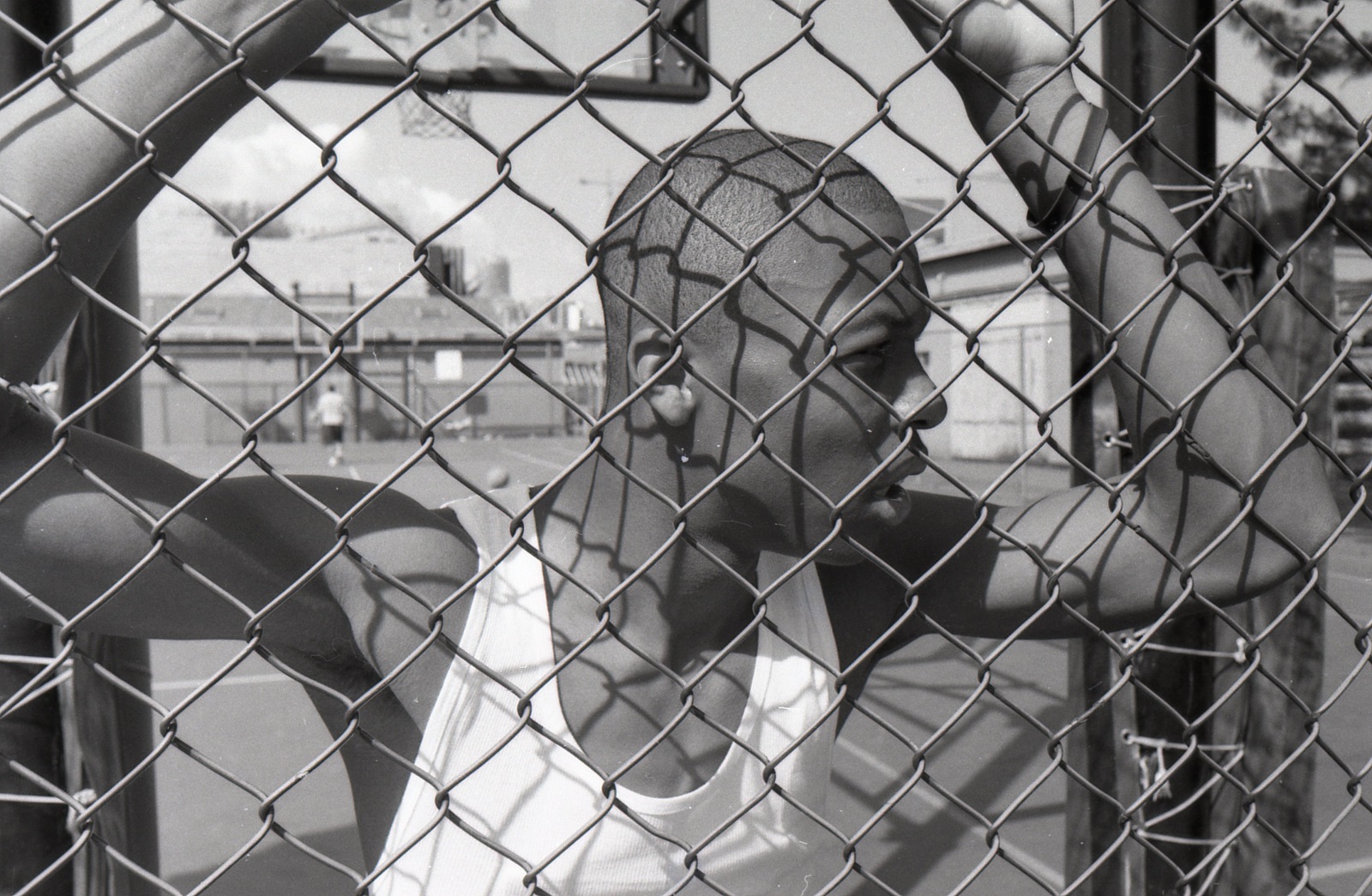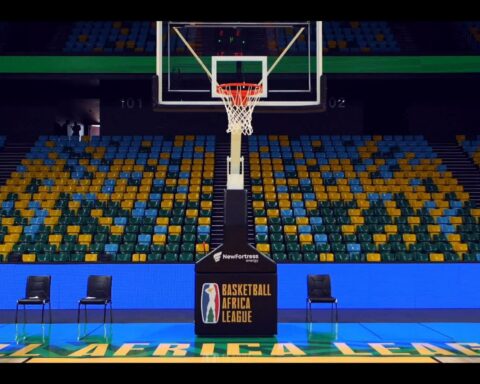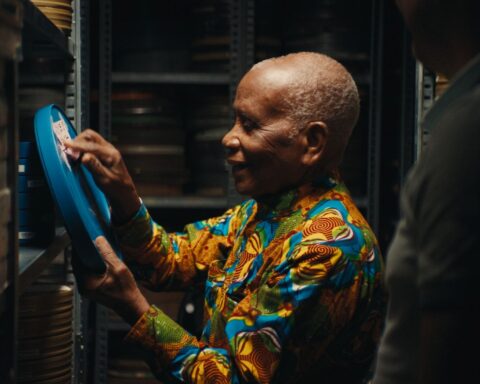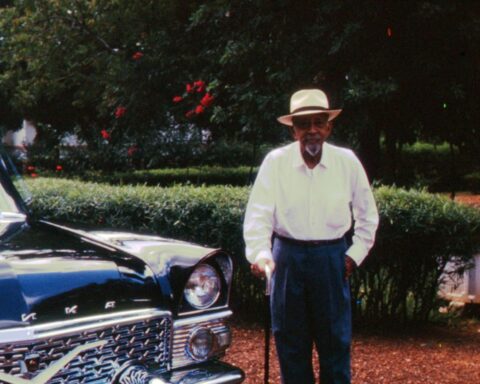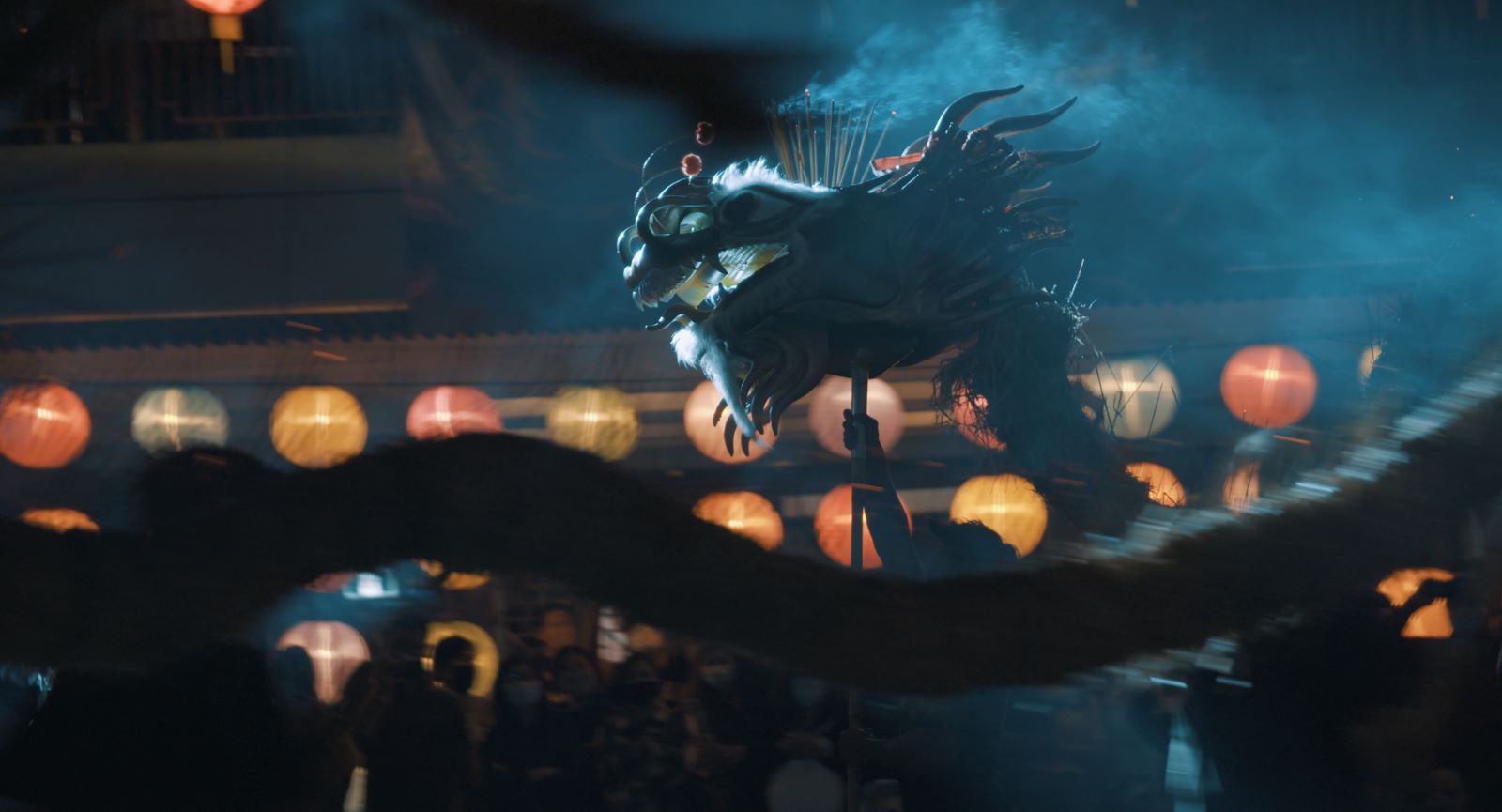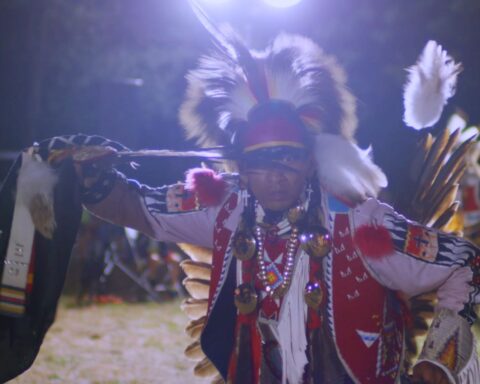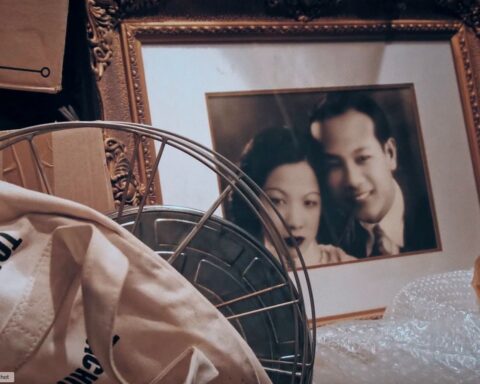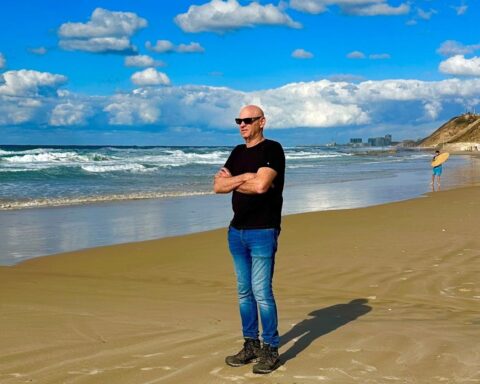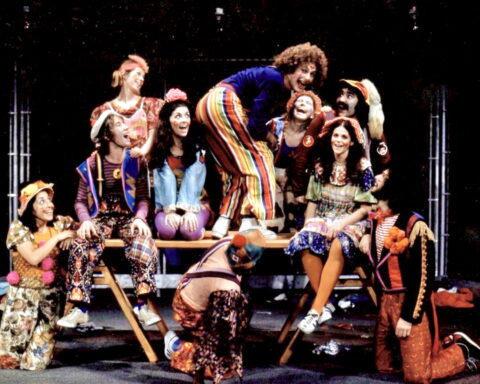On June 17, 2019, I arrived at an already half-full Nathan Phillips Square in Toronto at 6:30 AM ready to be a part of history. For the first time ever, a National Basketball Association (NBA) championship parade was going to take place in Canada. The Toronto Raptors had beaten the Golden State Warriors in the NBA finals four days earlier and the energy in the city was still palpable. It quickly became evident that everyone had underestimated just how big the event would be, as over one million people ended up lining the streets of the downtown core.
Like sardines in a can left to roast in the sun, I was among a hundred thousand fans in and around the square who waited hours for the delayed convoy of Raptors to make their appearance. What struck me most as I observed the sea of diverse faces was just how much the sport has evolved globally since I was a kid. Although hockey still dominates the Canadian landscape, it is far easier now to access NBA and WNBA content. The sheer number of basketball documentaries and docuseries being released these days has finally given those who played the game a chance to tell their own stories. Through their eyes, we see that basketball is more than a sport; it is a microcosm of society where issues of race, gender, mental health, and institutional gatekeeping are intertwined with tales of triumph and community.
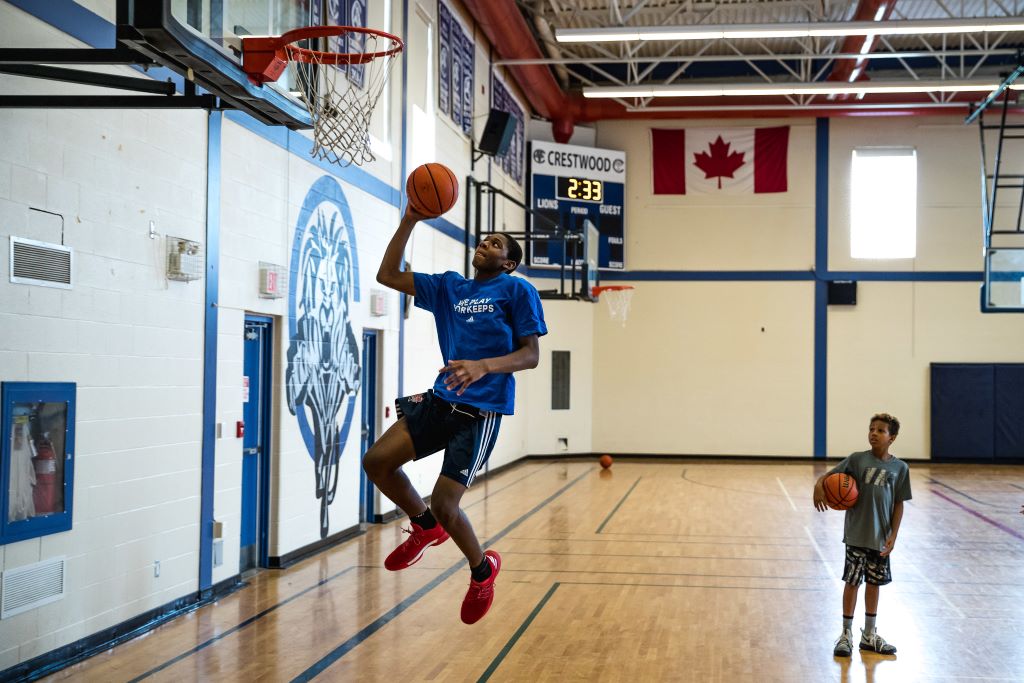
Considering the amount of basketball-related content available, and the success of the Raptors in recent years, it is no wonder Canada has become the top breeding ground for young sports talent outside the United States. While this country can take pride in the rich crop it produces, only a few will be plucked for the NBA. In the gripping nine-part docuseries True North: Inside the Rise of Toronto Basketball (2018) director Ryan Sidhoo offers an in-depth examination of how youth basketball has drastically evolved since the founding of the Toronto Raptors in 1995. Documenting the daily rigours of the youth basketball machine through five young men of various ages, including 12-year-old phenom Elijah Fisher, the series captures just how much grueling work is needed for the young men to have a chance at securing a university scholarship, let alone making it to the NBA.
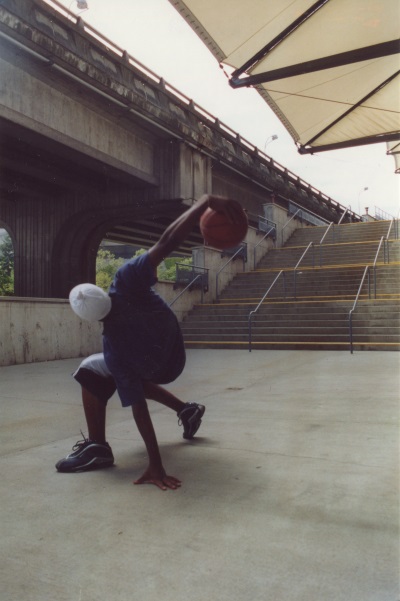
While Sidhoo also produced a condensed feature-length version, the docuseries offers a well-rounded look at the trials and tribulations that the young men endure and the supportive familial bonds that keep them focused on their goals. One observes the pressures of balancing schoolwork, basketball camps, and numerous year-round tournaments. While their coaches aim to instill a work ethic that they will carry into manhood, the business side of the experience is always present. Simply being recruited by a particular high school or an Amateur Athletic Union (AAU) team could mean big revenue for that institution’s program. Though players are unable to make money off their talents until they turn pro, the young men are turned into commodities before they even graduate high school.
The commodification of players, like cattle branded by numerous searing irons over their lifespans, is a subject that filmmakers Jeremy Schaulin-Rioux and Kirk Thomas confront in their wonderful documentary Handle with Care: The Legend of the Notic Streetball Crew (2021). The Notic was a ridiculously talented and inventive group of players who came out of the Vancouver streetball scene in the early 2000s. Comprised of mostly immigrants and first-generation Canadians, rejecting indoctrination into the cult of hockey, an expensive sport that is culturally thrust upon kids from an early age, they found community and friendship in basketball.
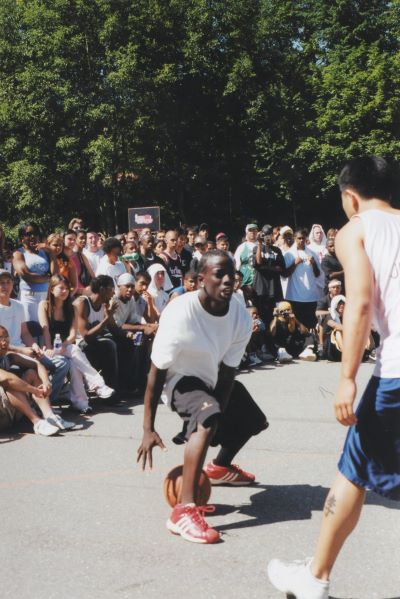
The sport bound the crew together, providing them with a self-confidence that they wore as a suit of armor in their daily battles with systemic racism at school and within their predominantly white communities. As one player notes in the film, many of the Black kids were placed in a “special class” where they were made to feel dumb. Things were not much better when they played on the school basketball teams. Coaches would yell at them to not “play jungle ball” when they emulated a move from their favourite NBA player or did anything that got the crowd hyped. While their identities may have been repressed within the school walls, their creativity was encouraged at events such as the Hoop it Up tournament, where not only was The Notic born, but Schaulin-Rioux and Thomas also got the idea to document the crew’s basketball skills.
Inspired by the documentary On Hallowed Ground: Streetball Champions of Rucker Park (2000) and the popular AND1 Mixtapes (1998–2008), Schaulin-Rioux and Thomas created video compilations, The Notic Vol. 1 and The Notic Vol. 2, which became best-sellers within the basketball community. Despite the international success of the tapes, the men never saw a dime. In documenting the rise, fall, and ultimate rebirth of The Notic, Schaulin-Rioux and Thomas celebrate the group’s accomplishments and wrestle with their problematic role in the crew’s legacy. Blind to the power and privilege that their white skin carried, the directors blurred the lines of friendship and business, never considering the challenges the young Black basketball players faced, while they were having success selling the tapes.
While a few members of the Notic crew found a professional life playing overseas, there are few financially viable career options for individuals who play streetball. The realization that one can spend years laying the bricks for a structure that will ultimately never be built can be soul crushing. For Lusia “Lucy” Harris, this led to mental health issues as she struggled to define who she was without basketball. One of the first two women inducted into the Naismith Memorial Basketball Hall of Fame, Harris was a pioneer in women’s basketball. In Ben Proudfoot’s Academy Award-winning documentary short The Queen of Basketball (2021), Harris recounts how her life was forever changed by the 1972 passing of Title IX, a law that declared that any education program provided to men must also be provided to women.
Choosing to go to Delta State University specifically because they had a women’s basketball program, even though she was likely to be the only Black student, Harris led her team to three national championships. She also became the first woman to score a basket at the Olympics when women’s basketball debuted at the 1976 games in Montreal. However, despite her championships and Olympic silver medal, the crushing reality hit Harris upon graduating that there were no professional avenues for women—the WNBA having not yet come into being. As she notes in the film, she “wanted to keep playing, but there was no place to go.” While Harris’ own journey was abruptly cut short, she paved the way for generations of female players.
Although more opportunities now exist for female players than in Harris’ era, the murky pathway to equality is still under construction. This is something Bilqis Abdul-Qaadir discovered the hard way as one observes in Tim O’Donnell and Jon Mercer’s Life without Basketball (2019). Before eventually moving to Canada and establishing a basketball training gym, she was breaking records and barriers in her home state of Massachusetts. The first Division 1 athlete to play wearing a hijab, Abdul-Qaadir’s post-college dreams of competing professionally in Europe were dashed when the International Basketball Federations (FIBA) cited a rule that prohibited headgear that could cause injury as the reason she could not play.
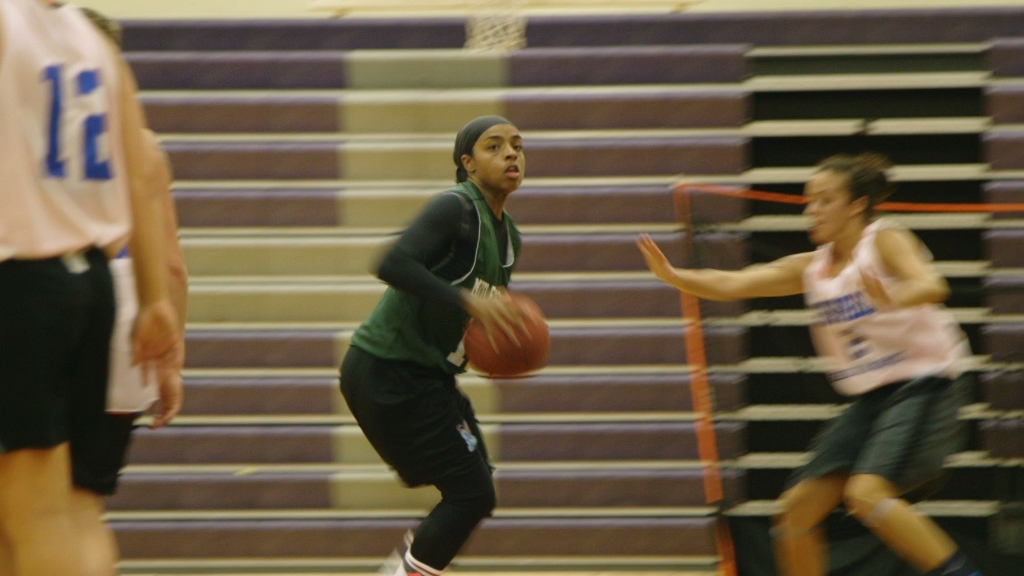
The fact that the ruling, dubbed the “hijab rule” in the media, was specifically invoked on a Muslim woman was not lost on Abdul-Qaadir. Despite the pressures to conform by removing the hijab, she held fast to her religious values and sacrificed her career in the process. While she became a coach and mentor for young Muslim girls learning to play basketball, the three-year fight she endured before the ruling was eventually overturned took its toll on her.
It became clear when Abdul-Qaadir finally met with representatives of FIBA that the issue was never about safety, as they had claimed. In fact, what ultimately moved the needle for the members of the organization to change their minds was the negative press that came from a viral letter accusing FIBA of human rights violations that was signed by both NBA and WNBA players.
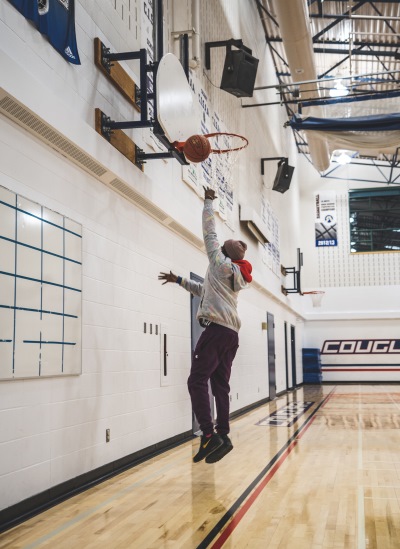
Similar to Abdul-Qaadir, Josiah Wilson understands the sting of being prevented from doing what you love solely based on one’s identity. The focal point of Yasmine Mathurin’s powerful documentary One of Ours (2021), Wilson was banned from representing the Heiltsuk Nation at the 2016 All Native Basketball Tournament. Although he had played in the tournament the previous two years, organizers invoked a blood quantum rule, which required players to have one-eighth indigenous blood. This specifically impacted Wilson, who was born in Haiti and adopted as a baby, despite being raised in a blended Indigenous family of the Heiltsuk Nation in Calgary. He was not simply being banned from the tournament but, more importantly, prevented from sharing in an experience with the community he deeply loved. While the ruling was revoked two years later, the documentary makes it clear that it will take far longer for the emotional wounds Wilson suffered to heal.
The lingering emotional scars that come with being painted with an unjust brush are felt by some of the NBA players who were involved in the infamous “malice at the palace” incident. Considered one of the darkest moments in NBA history, a fight broke out between players and fans during an Indiana Pacers/Detroit Pistons game in 2004. As one observes in Floyd Russ’ Untold: Malice at the Palace (2021), it did not take long for the confrontation to become media fodder as journalists and pundits demonized the players, labelling them “thugs.” Determined to send a message to the athletes and the media, NBA commissioner David Stern took it upon himself to deliver unprecedented lengthy suspensions to the key players involved.
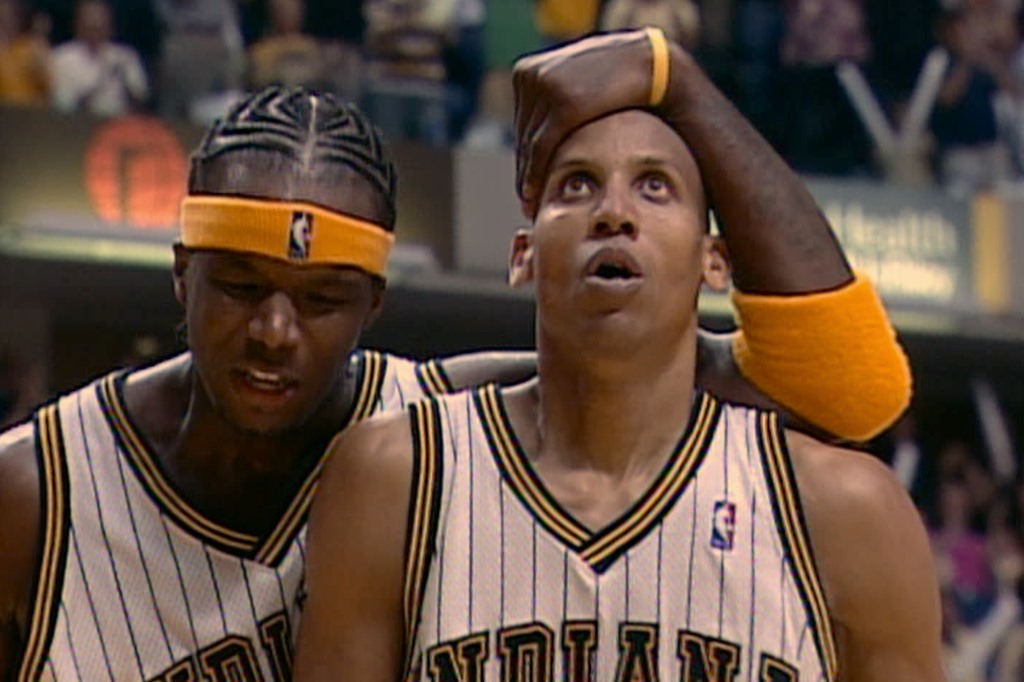
Stern wielded the heavy gavel of justice in his court of one without allowing the players involved to take the stand. 17 years later, Russ’ documentary finally gives the players a chance to tell their side of the story. Incorporating never-before-seen footage, he breaks down the sequence of events to show that it was the fans who both instigated and escalated the conflict. While the players bear some responsibility, Russ highlights how the humanity of NBA players is often ripped away by fans who view them as disposable entertainers whose only role is to, as Fox News host Laura Ingraham famously told LeBron James in 2018, “shut up and dribble.”
The fallout of the “malice at the palace” led to Stern implementing a strict dress code which banned everything from ball caps to chains to sleeveless shirts that displayed tattoos. In her directorial debut Iverson (2014), director Zatella Beatty documents how the dress code took direct aim at then-up-and-coming star Allen Iverson who had numerous tattoos and openly embraced hip-hop culture. Labelled a troublemaker since he was a teen, his rebellious attitude made him an easy target for those looking to put Black athletes in their place. The most grievous episode resulted in a stint in jail for allegedly taking part in a racially motivated fight in a bowling alley, despite video evidence that clearly showed that he was not involved.
Hearing Iverson recount instances of misunderstanding and negative perceptions, such as arose from the viral “we talkin’ practice” clip that haunted most of his career, one understands that his time in the NBA was remarkably revealing of the racism at the core of the basketball establishment.
He may not have won a championship, but the Hall of Fame inductee revolutionized how the game was played by smaller point guards and influenced the fashion of a generation of young fans. The hip-hop style he was once condemned for is now treated as high fashion around the world. Beatty’s film breaks down the walls of misconception surrounding Iverson to reveal a complex individual who was unfairly maligned in the court of public perception.
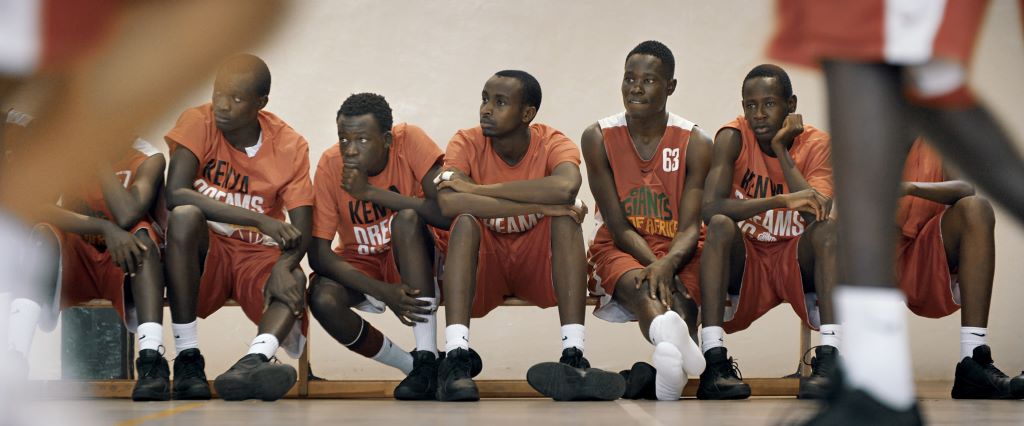
Iverson’s life serves as a cautionary tale for young athletes who should be allowed the room to make mistakes. Providing a safe space for young players to grow and learn is built into the framework of the Giants of Africa program created by Toronto Raptors vice-chairman and president Masai Ujiri. In Giants of Africa (2016), Academy Award-nominated director Hubert Davis follows Ujiri and his team as they travel to Nigeria, Rwanda, Ghana, and Kenya, overseeing camps that are designed to teach basketball skills and give the participants the tools to empower themselves. The documentary not only captures the global reach of basketball, but also reminds us that the sport can unify individuals, regardless of the hardships some may have endured, and instill values that will last a lifetime.
While it is easy to reduce basketball to such binary notions as winners and losers, the sense of community it evokes is the real draw. Rather than viewing basketball players as mere commodities for entertainment, the increase in basketball documentaries and docuseries brings their humanity and passion to the fore. In their tales of triumph and adversity on and off the court, we see the complexities of our society reflected.




